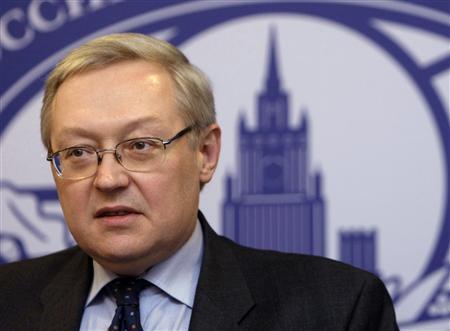
From Steve Gutterman, Reuters: Russia signaled on Thursday that a change in U.S. plans for a European anti-missile shield could help the two sides make progress towards resolving a dispute that has frayed their relations. . . .
Russia’s point man for U.S. relations, Deputy Foreign Minister Sergei Ryabkov, said on Thursday the planned changes brought a new element to the issue. He called for further dialogue, noting Moscow still had concern that U.S. missile defenses could threaten its security.
Ryabkov’s remarks were more upbeat than Russia’s initial, critical reaction to U.S. Defense Secretary Chuck Hagel’s announcement of changes in U.S. global missile defense plans on Friday.
"There is no unequivocal answer yet to the question of what consequences all this can have for our security," Ryabkov said.
"The causes for concern have not been removed, but dialogue is needed – it is in our interest and we welcome the fact that the American side also, it appears, wants to continue this dialogue," he told reporters.
In Brussels, a senior U.S. defense official said Russia was "not a factor" in the U.S. decision to change missile defense plans but there was hope it would allay Russian misgivings.
"Does this change their perception of U.S. intent … with the missile defense program? We would certainly hope so and would welcome such a change, but only they, in the end, can decide," said the official, briefing journalists on the condition that he was not further identified.
"We hope they will give it serious consideration and then come, we hope, to the correct conclusion that this is further evidence that NATO’s missile defense plans … do not threaten Russia. . . ."
Ryabkov said the United States had given Russia more information about its plans during his talks in Geneva this week with Rose Gottemoeller, the U.S. acting under-secretary of state for arms control and international security.
"The material is interesting – it brings something new into this situation," Ryabkov said. "(But) I would not venture to say now whether the decisions made by the (U.S.) administration are a plus or more of a minus." (photo: Denis Sinyakov/Reuters)
Image: reuters%203%2021%2013%20Rybabkov.jpg
